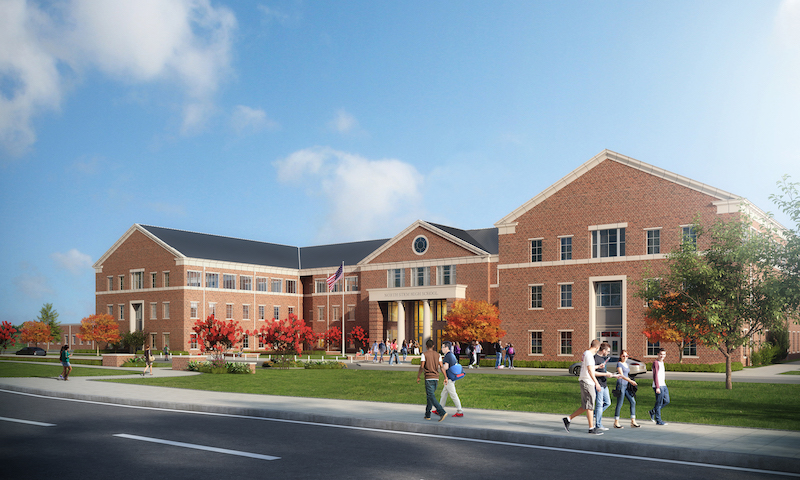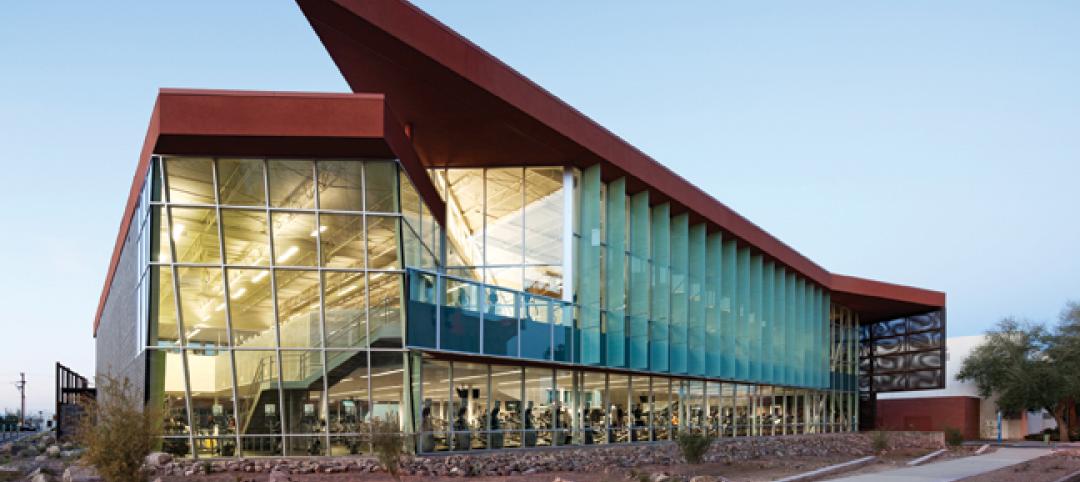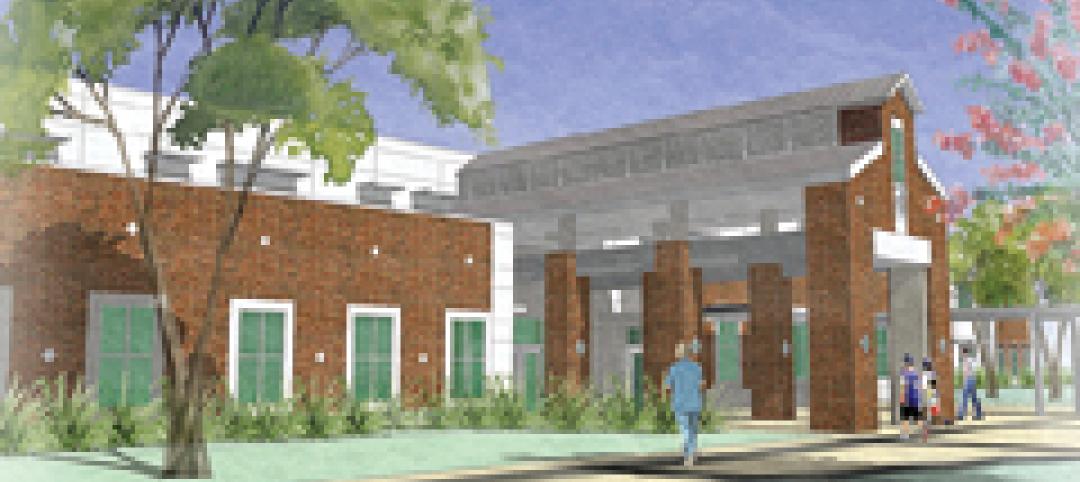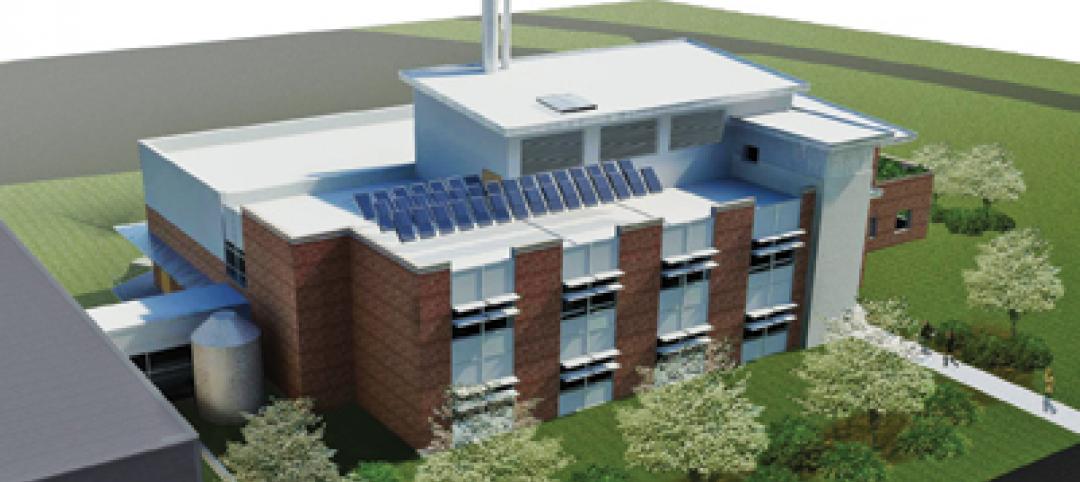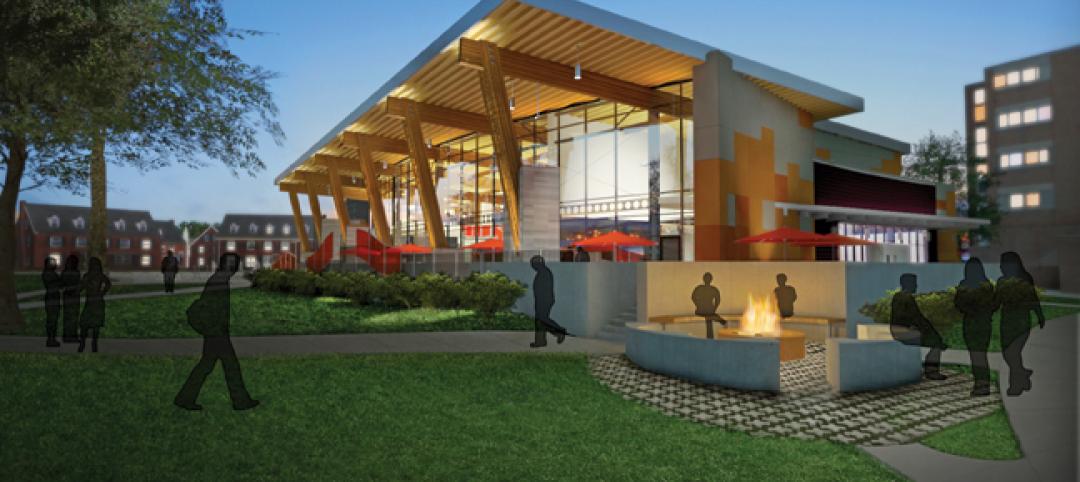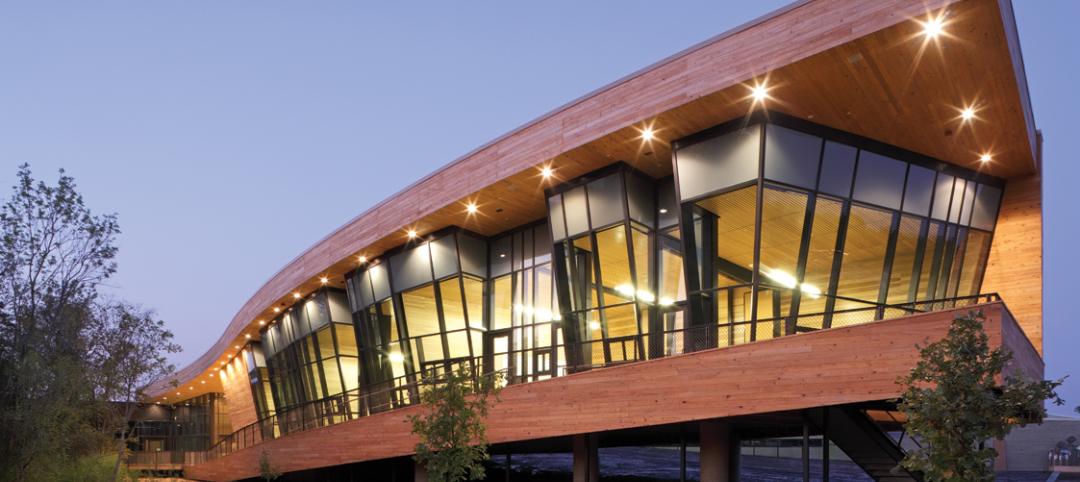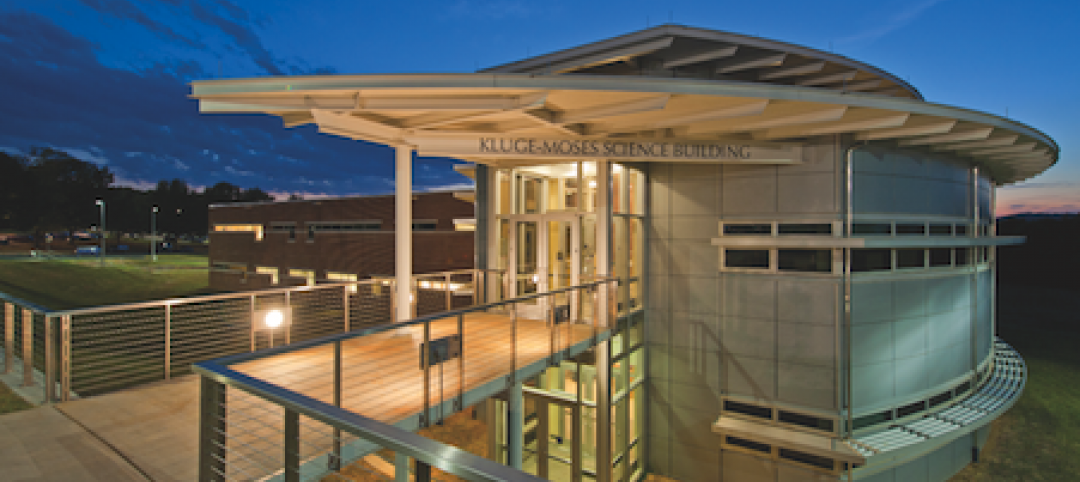Fulton County Schools in Georgia teamed with Georgia Tech’s Center for Education Integrating Science, Mathematics, and Computing (which provided curriculum support) and several other partners to develop Innovation Academy, the school district’s latest magnet school.
The 245,000-sf, three-level school—whose construction began in July 2018 and whose ceremonial groundbreaking occurred last Nov. 22—will be located in downtown Alpharetta, Ga., on property that previously housed the old Milton High School. It will open initially to accommodate ninth and 10th graders, but ultimately will serve between 1,500 and 1,600 students in grades nine through 12.
To support the workforce needs of the North Fulton community, the school’s curriculum will focus on Information Technology, Engineering, and Health Sciences, with an emphasis on design thinking and preparing students for a “knowledge economy.” Learning will be demonstrated through projects, portfolios, certifications, business mentorships as well as student created applications and products.
Innovation Academy will take academic concepts and teach them through real-world experiences and hands-on problem solving. Students will work in teams with support from a robust advisory program, with the goal of cultivating the students to become future leaders who can help solve the community’s challenges.
Atlanta-based design firm Cooper Carry brought together its K-12, Higher Education, and Science & Technology studios to collaborate on the design of Innovation Academy, which is centered around a three-story atrium dubbed Touchdown Commons that runs through the building’s spine and will serve as the school’s cafeteria and media center.
This multifunctional space will be outfitted with moveable seating and accessible technology to create an environment suitable for everything from eating lunch to robotics practice. The communal area is designed to connect with an outdoor courtyard and makerspace that’s visible through windows that allow for natural light to come into the classrooms.
Inside, the school’s corridor walls will be manufactured from a combination of glass windows and garage doors to promote transparency. Interior dividers will be made from stud walls. The school’s rooms will be constructed using a planning module with multiples of the same 11-ft wide by 30-ft deep configuration, to allow for user flexibility.
The building’s exterior brick and columns are designed to match the look of Alpharetta City Center, a 26-acre mixed use property that expanded the city’s downtown by six blocks and includes the Cooper Carry-designed Alpharetta City Library, which opened five years ago.

The three-story atrium in Innovation Academy, known as Touchdown Commons, will be a multifunctional space that connects to an outdoor courtyard.
The design plans for Innovation Academy were informed by public outreach sessions with the school’s faculty and local community members.
Cooper Carry is also working with Fulton County Schools to develop a sister STEM school in Fairburn, Ga., which could open during the 2021-22 school year.
Jacobs is the project manager and Barton Malow the GC on Innovation Academy, which is scheduled to open in August 2021, a year later than originally planned.
Superintendent Mike Looney told the Atlanta Journal Constitution last June that his staff needed more time to prepare before the school opened. “I want to ensure that there is a comprehensive educational structure in place before we recruit and place students in this program,” he stated. “If we want students to join a new effort like this, they and their parents deserve a comprehensive and detailed picture of what they will learn as part [of] this experience and how that experience will prepare them for college and a career.”
Indeed, next year Innovation Academy will be used as a hub for teacher and staff training.
Related Stories
| Nov 3, 2010
Recreation center targets student health, earns LEED Platinum
Not only is the student recreation center at the University of Arizona, Tucson, the hub of student life but its new 54,000-sf addition is also super-green, having recently attained LEED Platinum certification.
| Nov 3, 2010
Designs complete for new elementary school
SchenkelShultz has completed design of the new 101,270-sf elementary Highlands Elementary School, as well as designs for three existing buildings that will be renovated, in Kissimmee, Fla. The school will provide 48 classrooms for 920 students, a cafeteria, a media center, and a music/art suite with outdoor patio. Three facilities scheduled for renovations total 19,459 sf and include an eight-classroom building that will be used as an exceptional student education center, a older media center that will be used as a multipurpose building, and another building that will be reworked as a parent center, with two meeting rooms for community use. W.G. Mills/Ranger is serving as CM for the $15.1 million project.
| Nov 3, 2010
Virginia biofuel research center moving along
The Sustainable Energy Technology Center has broken ground in October on the Danville, Va., campus of the Institute for Advanced Learning and Research. The 25,000-sf facility will be used to develop enhanced bio-based fuels, and will house research laboratories, support labs, graduate student research space, and faculty offices. Rainwater harvesting, a vegetated roof, low-VOC and recycled materials, photovoltaic panels, high-efficiency plumbing fixtures and water-saving systems, and LED light fixtures will be deployed. Dewberry served as lead architect, with Lord Aeck & Sargent serving as laboratory designer and sustainability consultant. Perigon Engineering consulted on high-bay process labs. New Atlantic Contracting is building the facility.
| Nov 3, 2010
Dining center cooks up LEED Platinum rating
Students at Bowling Green State University in Ohio will be eating in a new LEED Platinum multiuse dining center next fall. The 30,000-sf McDonald Dining Center will have a 700-seat main dining room, a quick-service restaurant, retail space, and multiple areas for students to gather inside and out, including a fire pit and several patios—one of them on the rooftop.
| Nov 2, 2010
Cypress Siding Helps Nature Center Look its Part
The Trinity River Audubon Center, which sits within a 6,000-acre forest just outside Dallas, utilizes sustainable materials that help the $12.5 million nature center fit its wooded setting and put it on a path to earning LEED Gold.
| Oct 27, 2010
Grid-neutral education complex to serve students, community
MVE Institutional designed the Downtown Educational Complex in Oakland, Calif., to serve as an educational facility, community center, and grid-neutral green building. The 123,000-sf complex, now under construction on a 5.5-acre site in the city’s Lake Merritt neighborhood, will be built in two phases, the first expected to be completed in spring 2012 and the second in fall 2014.
| Oct 13, 2010
Editorial
The AEC industry shares a widespread obsession with the new. New is fresh. New is youthful. New is cool. But “old” or “slightly used” can be financially profitable and professionally rewarding, too.
| Oct 13, 2010
Thought Leader
Sundra L. Ryce, President and CEO of SLR Contracting & Service Company, Buffalo, N.Y., talks about her firm’s success in new construction, renovation, CM, and design-build projects for the Navy, Air Force, and Buffalo Public Schools.
| Oct 13, 2010
Campus building gives students a taste of the business world
William R. Hough Hall is the new home of the Warrington College of Business Administration at the University of Florida in Gainesville. The $17.6 million, 70,000-sf building gives students access to the latest technology, including a lab that simulates the stock exchange.
| Oct 13, 2010
Science building supports enrollment increases
The new Kluge-Moses Science Building at Piedmont Virginia Community College, in Charlottesville, is part of a campus update designed and managed by the Lukmire Partnership. The 34,000-sf building is designed to be both a focal point of the college and a recruitment mechanism to get more students enrolling in healthcare programs.


